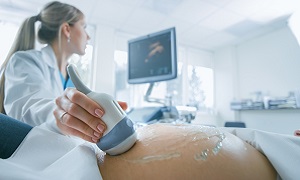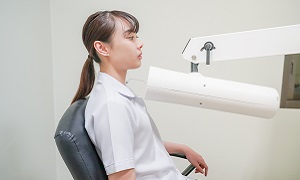Best Doctors in India for Grave's Disease treatment
Best Hospitals in India for Grave's Disease treatment
- City: Mumbai, India
Hospital Highlights:
- Fortis Hiranandani hospital was established in 2007.
- The hospital is an advanced tertiary care, multi-specialty hospital equipped with 149 beds.
- The hospital is equipped with a super ICU to provide emergency medical care to critically ill patients.
- The hospital is NABH accredited.
- The critical care facility in the hospital is augmented with the state-of-the-art facilities that facilitate speedier diagnosis and efficient monitoring.
- The hospital provides specialty medical services in cardiology, orthopedic science, pediatric science, neurology, diabetic care, urology, nephrology, ENT, obstetrics, gynecology, cosmetic surgery, bariatric surgery, neuro and spine care.
- City: Gurugram, India
Hospital Highlights:
- W Pratiksha Hospital, Gurugram, is one of the best hospitals in the NCR region. It is also a top hospital in India for IVF. Since its inception, the hospital has performed over 5500 successful IVFs. The hospital also specializes in gynecology.
- With over 20 years of experience in providing quality healthcare, the hospital is known as one of the most trusted and valued health providers in India.
- Equipped with world-class medical facilities and advanced technology, the hospital’s doctors and clinicians also have a track record of delivering excellent results. The hospital is also known for focusing on preventive well-being as much as on curative treatment.
- The hospital has earned the trust of its patients, by providing the best available treatments at affordable costs.
- City: Gurugram, India
Hospital Highlights:
- Paras hospital was established in 2006 and is the 250 bedded flagship hospital of Paras Healthcare.
- The is supported by a team of doctors of international and national repute.
- The hospital is NABH accredited and also the first hospital in the region to have a NABL accredited laboratory.
- The hospital provides specialty medical services in around 55 departments including Neurosciences, Joint Replacement, Mother & Child Care, Minimal Invasive Surgery, Gynecology and Obstetrics, Ophthalmology, Dermatology, Endocrinology, Rheumatology, Cosmetic and Plastic surgery.
- The hospital is equipped with state-of-the-art technologies.
- City: Kolkata, India
Hospital Highlights:
- Fortis Hospital, Anandapur, Kolkata is a world-class super-speciality equipped with the latest technologies in the medical world.
- The hospital is NABH accredited.
- This state-of-the-art facility specializes in cardiology and cardiac surgery, urology, nephrology, neurosciences, orthopaedics, digestive care, emergency care and critical care.
- The hospital, governed by integrated Building Management System (IBMS), has a pneumatic chute system, for quick vertical and horizontal transportation between floors, facilitating speedy transfer of patient specimens, documents, reports, and medicines to the concerned departments.
- The hospital also has a nephrology department with over 28 advanced dialysis units.
- City: Mumbai, India
Hospital Highlights:
- SL Raheja hospital is a 140-bed multi-specialty tertiary care hospital that is being managed by Fortis Healthcare Ltd.
- The hospital is a benchmark in healthcare and medical facilities in the neighborhood of Mahim & the western suburbs.
- L.Raheja Hospital, Mahim has one of the most effective ICU and Casualty care services.
- The hospital provides specialty medical services in Cardiology, Oncology, Neurology, Orthopedics, Mother & Child Care, and in Diabetes.
- City: Mumbai, India
Hospital Highlights:
- Wockhardt Hospitals were established in the year 1973, originally called First Hospitals and Heart Institute.
- Wockhardt Hospitals are super specialty health care networks in India, nurtured by Wockhardt Ltd, India’s 5th largest Pharmaceutical and Healthcare company.
- Wockhardt Hospitals is associated with Partners Harvard Medical International, an international arm of Harvard Medical School, USA.
- Wockhardt Heart Hospital performed India’s first endoscopic heart surgery.
- The hospital has a state-of-the-art infrastructure equipped with the latest technologies and modern equipment.
- It has special Centers of Excellence dedicated to the major specialties to provide hassle-free and high-quality clinical care.
- City: Gurugram, India
Hospital Highlights:
- The CK Birla Hospital in Gurugram is a NABH-accredited multi-specialty hospital.
- The hospital strives to increase the quality of healthcare by focusing on UK NHS nurse and midwife training requirements. Policies and practices derived from the National Institute for Health and Treatment Excellence (NICE) recommendations in the United Kingdom ensuring that a strong focus on safety, high-quality clinical care, and sanitation is maintained.
- The hospital’s cutting-edge technology and facilities allow for real-time communication and seamless collaboration among caregivers, ensuring accuracy and the best possible results. Those with foreign experience and accreditations make up part of the hospital’s team of clinicians.
- City: Ahmedabad
Hospital Highlights:
- As a member of the Apollo Hospitals Group, Apollo Hospitals International Limited, Ahmedabad is one of the most popular and sought-after medical facilities in Gujarat.
- Through its 6 Centres of Excellence and various affiliated branches, which cover all specialties and subspecialties, the hospital provides the most advanced clinical services.
- Since its inception in 2003, the hospital has been providing each patient with the most up-to-date medical equipment and state-of-the-art technology.
- With more than 150 successful organ transplants, including liver and renal transplants, the facility has been able to build a strong and extensive organ transplant program.
- In addition to performing 600 surgeries and caring for over 1800 patients on an IP basis, the hospital sees more than 18,000 patients on average in the outpatient department.
- With one of the biggest cardiology teams in the area, the hospital provides state-of-the-art regional care treatment in Cardiac Sciences.
- Additionally, the hospital offers a broad range of Neuro Interventional techniques to help stroke patients recover more quickly.
- City: Noida, India
Hospital Highlights:
- Jaypee Hospital is the flagship hospital of the Jaypee Group.
- This hospital has commissioned 525 beds in the first phase and has been planned and designed as a 1200 bedded multi-specialty facility.
- It holds the accreditation of the NABH and NABL.
- The hospital has state-of-the-art infrastructure equipped with the latest technologies and modern equipment like 64 Slice PET CT, Dual Head 6 Slice SPECT CT, Gamma Camera, and Da Vinci Robotic Surgery for comprehensive robotic surgical solutions.
- It has special Centers dedicated to the major specialties to provide hassle-free and high-quality clinical care.
- City: Mumbai, India
Hospital Highlights:
- Reliance Hospital is one of the best super-specialty care hospitals in Navi Mumbai.
- The main purpose of this hospital is to become a trustworthy place for the best health and hope for society. The hospital is well connected to the suburbs of Mumbai and Navi Mumbai.
- The hospital has various specialty departments, viz., Accident & Emergency, Anesthesiology, Dental Services, Dermatology, Diabetology, Dietetics Nutrition, Endocrinology, ENT, Gastroenterology, General Surgery, Gynaecology And Obstetrics, Hepato Pancreato Biliary Surgery, Infectious Disease, Internal Medicine, Interventional Radiology, Laboratory Medicine, Minimal Access Laparoscopic Surgery, Nephrology, Neurosciences, Opthalmology, Orthopaedics, Paediatrics, Pain Management Palliative Care, Physical Medicine Rehabilitation, Plastic And Reconstructive Surgery, Psychiatry, Pulmonary Medicine, Radiology, Rheumatology, Transplant, Urology Andrology, Vascular Surgery
Grave's Disease
Grave’s Disease is an autoimmune disorder that leads to the overproduction of thyroid hormones. The condition is called hyperthyroidism. Amongst the various causes of hyperthyroidism, Grave’s disease is the most common source. This disease is more common in women and people below 40 years of age.
Causes of Grave's Disease
Symptoms of Grave's Disease
The symptoms and signs of Grave’s disease can be:
- Heat sensitivity
- Anxiety
- Fatigue
- Increase in perspiration
- Erectile dysfunction or reduced libido
- Irritability
- Bulging eyes (Grave’s ophthalmopathy)
- Warm, moist skin
- Palpitations (rapid or irregular heartbeat)
- Frequent bowel movements
- Fine tremors of the fingers or the hands
- Weight loss
- Sleep disturbance
- Red, thick skin mostly on the top of feet or on the shins (Grave’s dermopathy)
- Enlargement of the thyroid gland (goiter)
Diagnosis of Grave's Disease
Your doctor may perform a physical examination to check for the signs and symptoms of Grave’s disease and diagnose the condition. He or she might ask you about your family history and medical history.
Blood tests
Blood tests help in determining the levels of thyroid-stimulating hormone (TSH). TSH hormone is a pituitary hormone that stimulates the thyroid gland. Blood tests also determine the levels of thyroid hormones. If you are suffering from Grave’s disease, you might have a lower level of TSH than normal with high levels of thyroid hormones.
Ultrasound
Radioactive iodine uptake
Your doctor will determine the rate of uptake of iodine by the thyroid gland by giving you some amount of radioactive iodine. He or she will measure the amount in the thyroid gland with the help of a specialized scanning camera. The doctor can determine whether the Grave’s disease or any other ailment is the cause of hyperthyroidism by determining the amount of radioactive iodine taken up by your body.
Imaging tests
Your doctor might recommend special imaging tests like an MRI or a CT scan.
Treatment options for Grave's Disease
Radioactive Iodine Therapy
You take radioactive iodine (radioiodine) in your mouth under this therapy. The thyroid gland takes this radioiodine into its cells and the radiation destroys the overactive thyroid cells with the passage of time. Ultimately, your thyroid gland shrinks while reducing the symptoms within a few weeks to a few months. It may increase your risk of new or deteriorated symptoms of Grave’s ophthalmopathy. The treatment is not for breastfeeding women or pregnant women.
Anti-thyroid medications
Beta blockers
Surgery
Another treatment option for Grave’s Disease is thyroidectomy (removal of the thyroid) or subtotal thyroidectomy (removal of a part of your thyroid). You might need treatment to supply thyroid hormones in normal amounts after the surgery. The associated risk with this treatment is probable damage to the nerve controlling your parathyroid glands (tiny glands located near thyroid gland) and vocal cords. You might need to take lifelong thyroid medications after this surgery.
Lifestyle and home remedies
- Releasing stress: Stress worsens or triggers Grave’s disease. So, easing your stress might be helpful. You can listen to music or take a warm bath to relieve stress. Take the help of your doctor to create a plan involving good exercise, proper nutrition, and relaxation in your regular schedule.
- Eating well and exercise: Taking a balanced diet and exercising well helps to improve the symptoms during treatment. This makes you feel better. Weight-bearing exercises help to maintain bone density.


















